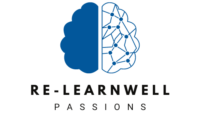In our interconnected world, effective communication skills have become vital for success. They form the bedrock of personal and professional relationships, enabling us to connect, express our thoughts, and build meaningful connections. In this article, we will delve into the seven key communication skills, explore the importance of honing these skills, identify the best attributes for effective communication, discuss the qualities of a good communicator, and provide guidance on how to describe your own communication skills.
The Seven Communication Skills
a) Verbal Fluency: The ability to express ideas clearly and confidently through spoken words, utilizing appropriate tone, language, and effective storytelling.
b) Non-Verbal Proficiency: Understanding and employing body language, facial expressions, gestures, and posture to complement and reinforce verbal messages.
c) Active Listening: Actively engaging in attentive listening, demonstrating genuine interest, and comprehending others’ perspectives to foster effective communication.
d) Empathy and Understanding: Cultivating the ability to understand and share the emotions and experiences of others, forging deeper connections and facilitating successful problem-solving.
e) Assertiveness: Expressing oneself confidently, respectfully, and directly, while remaining open to others’ viewpoints. Assertiveness promotes effective communication without resorting to aggression or passivity.
f) Conflict Resolution: The art of managing conflicts and disagreements constructively, employing active listening, seeking compromise, and facilitating mutually beneficial resolutions.
g) Emotional Intelligence: Harnessing emotional awareness to understand and manage emotions, both in oneself and others, leading to enhanced communication, relationship building, and social interactions.
The Importance of Communication Skills
Communication skills are paramount in personal and professional relationships. They enable effective collaboration, negotiation, and understanding. Strong communication fosters clarity, minimizes misunderstandings, and cultivates trust and respect among individuals.
The Best Skills for Effective Communication
a) Clarity and Conciseness: Articulating thoughts in a clear, concise manner, avoiding unnecessary jargon or ambiguity.
b) Adaptability: Tailoring communication styles to different audiences, contexts, and mediums, ensuring maximum impact and understanding.
c) Open-mindedness: Approaching conversations with an open mind, valuing diverse perspectives, and embracing constructive dialogue.
d) Confidence: Displaying self-assurance in communication, instilling trust and credibility in others.
e) Empathetic Listening: Engaging in active and empathetic listening, demonstrating genuine interest and understanding of others’ viewpoints.
f) Non-Verbal Awareness: Being mindful of body language, facial expressions, and tone of voice, ensuring they align with the intended message and foster effective communication.
What Makes a Good Communicator
a) Clear and Effective Expression: They can articulate thoughts and ideas in a manner easily understood by others, adapting their communication style to suit the audience.
b) Active Listening: They engage fully in the act of listening, seeking to understand rather than simply waiting for their turn to speak.
c) Empathy and Understanding: They demonstrate empathy by putting themselves in others’ shoes, valuing diverse perspectives, and fostering an inclusive environment.
d) Adaptability: They can adjust their communication style to suit various situations, individuals, and cultural contexts, ensuring effective and meaningful exchanges.
e) Respect and Open-Mindedness: They respect others’ opinions, fostering an environment conducive to open dialogue, where ideas can be freely shared and discussed.
Describing Your Communication Skills
a) Strong Verbal and Written Communication: Highlight your ability to articulate ideas effectively in both spoken and written forms, using appropriate language and adapting to different audiences.
b) Active Listening and Empathy: Showcase your capacity to actively listen, understand others’ perspectives, and respond with empathy and understanding.
c) Collaboration and Teamwork: Discuss your experience in collaborating with diverse individuals, emphasizing your communication skills in facilitating productive teamwork and achieving common goals.
d) Adaptability and Flexibility: Mention your ability to adapt your communication style to different situations and individuals, fostering effective communication in various contexts.
e) Conflict Resolution: Highlight your aptitude for managing conflicts by employing active listening, empathy, and finding mutually agreeable solutions.
Conclusion
Mastering communication skills is crucial for success in personal and professional realms. By developing and honing these skills, you can enhance your relationships, navigate conflicts, and achieve effective collaboration. Remember, effective communication is a continuous journey that requires self-awareness, practice, and adaptability. Embrace these skills, and you’ll unlock the power of effective expression in all aspects of your life.
Photo by Pavan Trikutam on Unsplash
Also, read Time management



